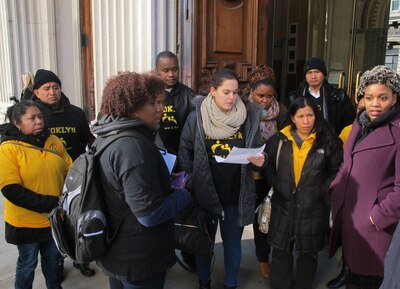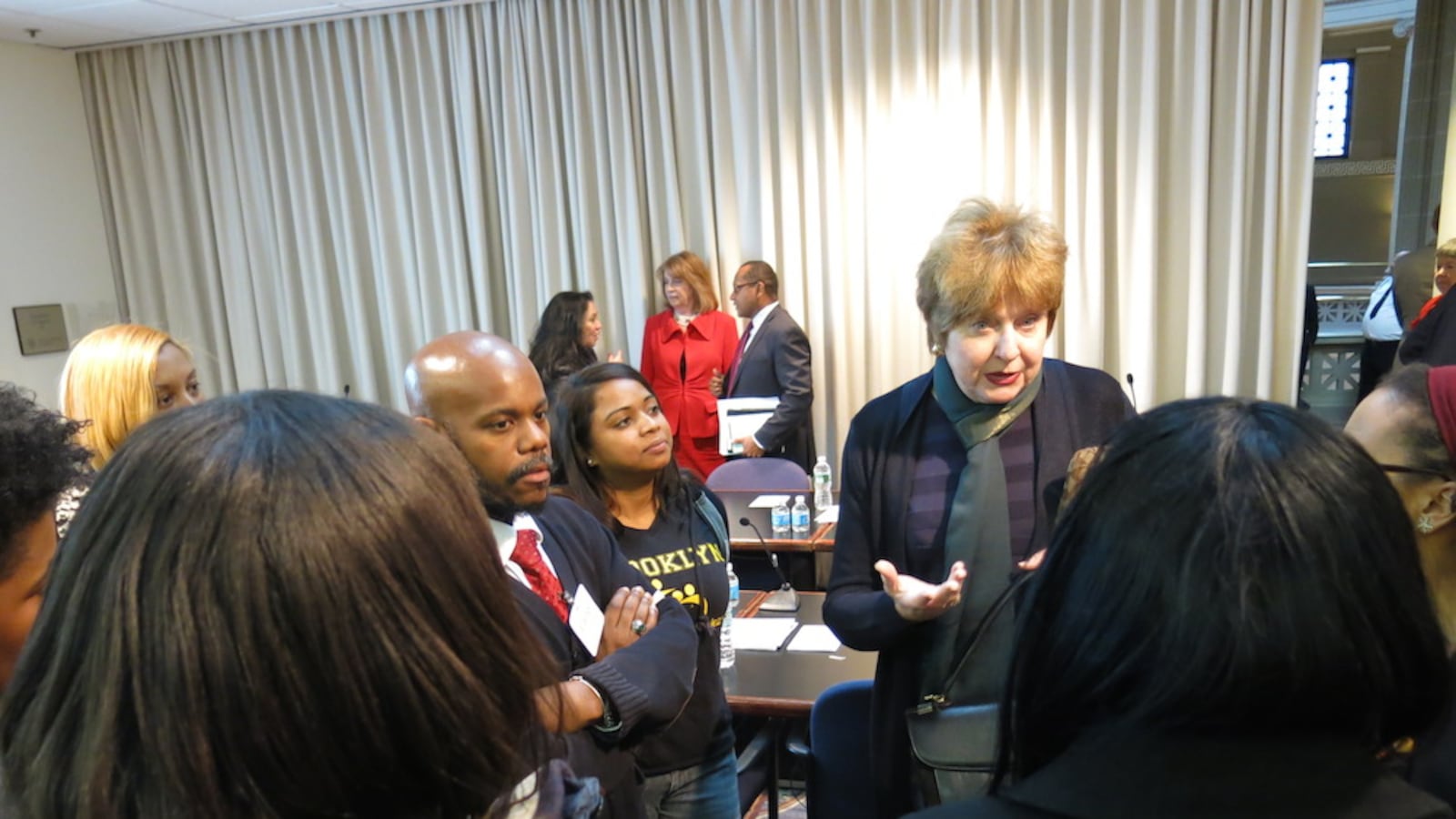Updated, 6:54 p.m — The city’s charter-school oversight came under harsh scrutiny Monday after it submitted a slew of school renewal recommendations that state education officials said were too lenient.
“I wouldn’t vote to keep most of these schools open, quite honestly,” Chancellor Merryl Tisch said at a Board of Regents meeting. “None of them have a track record worth writing home about.”
City officials had recommended allowing seven of its charter schools to stay open for another two-and-a-half to three-and-a-half years, according to a report posted to the Board of Regents website on Friday (and since revised). But in a rare move, the Regents agreed to delay voting on six of the renewals, citing the city’s own reports that said several were out of compliance with federal disciplinary laws and produced lower-than-average test scores. A seventh school was abruptly taken off the agenda after a last-minute lobbying spree from the school’s founder and parents.
The renewals are typically considered rubber-stamp votes by the time they make it to the Regents agenda. This time, state officials said they wouldn’t approve the extensions until representatives from the city’s charter-school office came to Albany and explained their reasoning.
The strong rebuke comes just a month after the Board of Regents faced a barrage of criticism for signing off on a new school in Rochester whose 22-year-old founder lied about his credentials. (Only after the founder’s lies came to light was the application withdrawn.) It also puts the spotlight on the city’s charter-school office, which has shrunk and merged with another office under Chancellor Carmen Fariña, who has only selectively embraced the charter sector.
While discussing the potential renewals issue on Monday, officials pointed to the city’s own reports, which showed that five of the seven schools have been out of compliance with federal disciplinary laws. The disciplinary policy at one of the schools, Hyde Leadership Charter School – Brooklyn, said that students could be expelled for minor infractions.
“I’m sitting here wondering, well, why would they recommend renewal if there’s evidence that was strong enough to include it in the renewal [report]?” said Lester Young, a Regent from Brooklyn.
Advocates of Children of New York says the charter school sector’s compliance problems go well beyond a handful of schools. The nonprofit says it reviewed more than 150 charter school discipline policies and is “alarmed by the number of policies that fail to comport” with the state’s charter school act, according to a letter sent to Tisch last week.
The schools up for review this week struggled in other ways, according to the city’s reports.
Staten Island Community Charter School went without a principal for five months during the last school year and experienced a 68 percent turnover of its instructional staff. Another school appeared to be in dire financial straits. Bedford-Stuyvesant New Beginnings was deemed to be in a “weak position” to meet its near-term financial obligations because it had just $304,257 in cash to cover more than $1 million in current liabilities.
Academically, several of the schools underperformed district averages, although they fared better when compared to district schools that served similar populations of students.
“The DOE reviews every school’s application for renewal and possible grade expansion carefully, and bases decisions on the proposal’s educational merit,” department spokeswoman Devora Kaye said in a statement.
All seven schools that were part of the city’s renewal reports this month were approved in 2009 as part of the last cohort of charter schools created by the Department of Education. The city lost its power to authorize new schools soon after, but it still has responsibility to oversee the charters of the 70 charter schools it had already approved. (The state’s other authorizers, the State Education Department of the State University of New York, can still approve new charters.)
It’s not the first time that the city has faced scrutiny for its charter school authorizing. Michael Duffy, who headed the city’s charter-school office for nearly three years before it lost its power to authorize new charter schools, said in 2012 that it was difficult to convince officials at the Department of Education to close schools because it the Bloomberg administration had been working hard to expand the charter school sector. And a judge once ripped the department’s authorizing standards as being “riddled with inconsistencies.”
Despite Regents’ concerns that the city went too easy in their recommendations, none of the schools earned a full, five-year renewal recommendation. Three of the schools were denied requests to add grades, and leaders of one of those schools felt that the city had been far too harsh.

In a last-minute lobbying spree that seemed to pay off, Teaching Firms of America founder Rafiq Kalam Id-Din traveled to Albany on Monday morning along with parents and staff to protest the city’s decision to deny the school’s request to add middle school grades. In New York City, more than a dozen parents and teachers waited in the lobby of the Department of Education’s headquarters demanding a meeting with Fariña.
In an interview, Kalam Id-Din said he believed the decision was “political” because an expansion would have meant the city would have had to find space for the school’s new grades. He also disputed some details in the city’s report for his school, including the suggestion that he had hired four TFOA staff members without bachelor’s degrees. Kalam Id-Din suggested that the city’s recommendation might have be racially motivated.
“Why is this happening to the only black-led charter school in Brooklyn?” he said
State Education Department officials said that Fariña asked them to take down the city’s renewal recommendation for TFOA on Sunday. They said the reason was that Kalam Id-Din had not signed the charter school agreement, though Kalam Id-Din said he wasn’t informed of Fariña’s letter until Monday afternoon.
“Someone said something to someone and the city is now negotiating,” said Assembly Member Walter Mosley, Jr., whose district includes the Bedford-Stuyvesant charter school. “I think something positive will take place.”
The other schools facing a delayed vote are Inwood Academy for Leadership Charter School and Rochdale Early Advantage Charter School. The Regents have 90 days to take action on any proposal before it is automatically approved.

